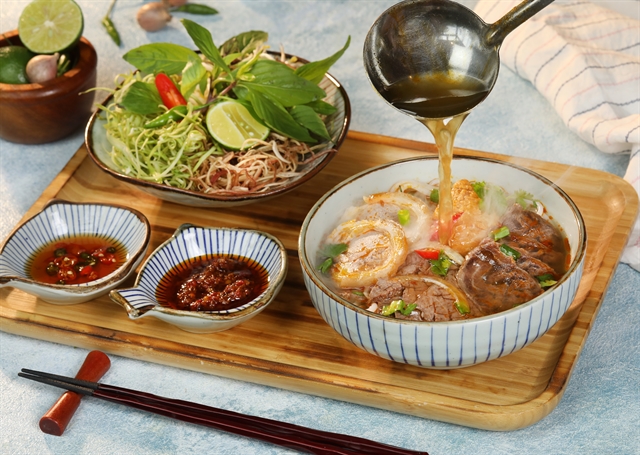▌Câu trả lời hay nhất
Driven by a desire to create a distinctive souvenir product that can raise awareness of his bangluong.gacity, Nguyễn Thanh Thảo from Hương Sơ Ward in Huế City, has boldly innovated by using lotus leaves to create unique conical hats.
Nón lá(conical leaf hat), a symbol of Vietnamese culture, has been an everyday accessory for centuries, enhancing women's beauty. Today, it promotes the image of Việt Nam and its people to the world.
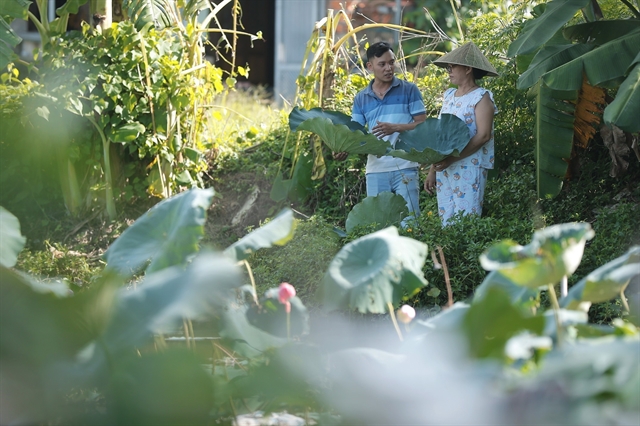 |
| The inspiration for lotus leaf conical hats came unexpectedly, as Thảo realises the essence of his homeland through the simple leaves, which quietly support the vibrant, fragrant lotus flowers amidst the muddy water. VNA/VNS Photos Minh Quyết |
While conical hats made from common materials are widespread, those crafted from lotus leaves are only available in Huế.
Driven by a desire to create a distinctive souvenir that can raise awareness of his city, Nguyễn Thanh Thảo in Hương Sơ Ward in Huế City, has boldly innovated by using lotus leaves to create these unique conical hats.
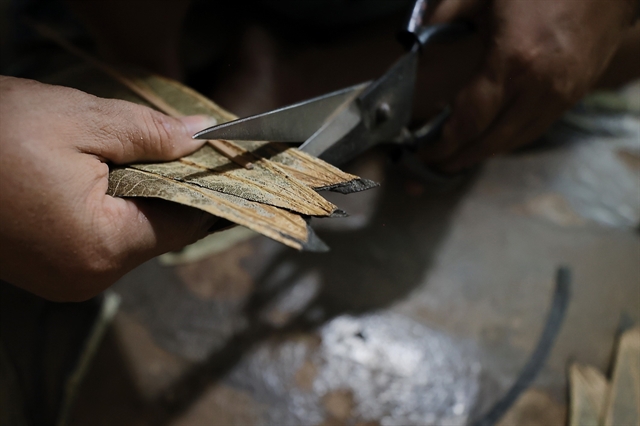 |
| A craftswoman cuts lotus leaves to make conical hats. |
Before discovering the idea of using lotus leaves, he experimented with various materials like bodhi and bamboo leaves.
The inspiration for lotus leaves came unexpectedly, as he felt the essence of his homeland through the simple leaves, which quietly support the fragrant lotus flowers amidst the muddy water.
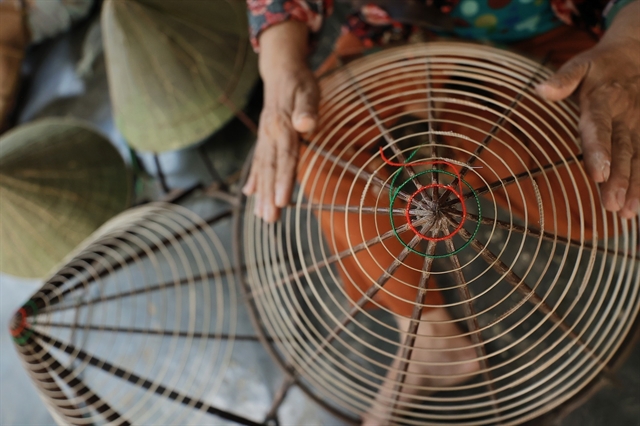 |
| Like conical hats made from palm leaves, the ones made from lotus leaves also require similar bamboo frames. |
During an excursion with friends to pick lotus flowers on Tịnh Tâm Lake, Thảo noticed the thick, flexible lotus leaves that embody the spirit of the nation. Both the conical hat and the lotus are iconic images of Huế, why not try using lotus leaves to make hats, he thought.
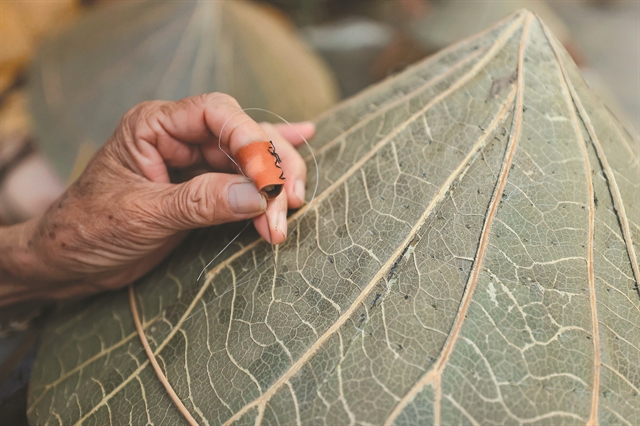 |
| Crafting a lotus leaf conical hat involves numerous intricate and labour-intensive steps. |
Inspired, he got to work. After months of experimentation, the first lotus leaf hats were created. His conical hats, with their unique shape and distinctive features, made a strong impression.
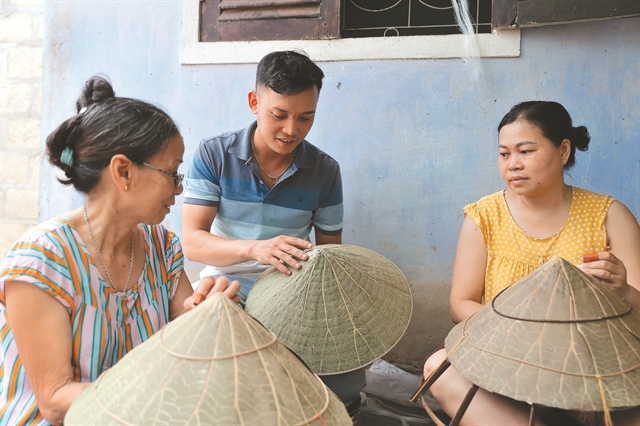 |
| Nguyễn Thanh Thảo (centre) discusses with craftswomen about their unique lotus leaf conical hats. |
According to Thảo, crafting a lotus leaf conical hat involves numerous intricate and labour-intensive steps.
First, the fresh lotus leaves picked from the lake are soaked in a bleach solution to remove impurities, then dried and ironed. To maintain the original colour of the lotus leaves and ensure the hat’s durability against sun and rain, Thảo developed a special varnish.
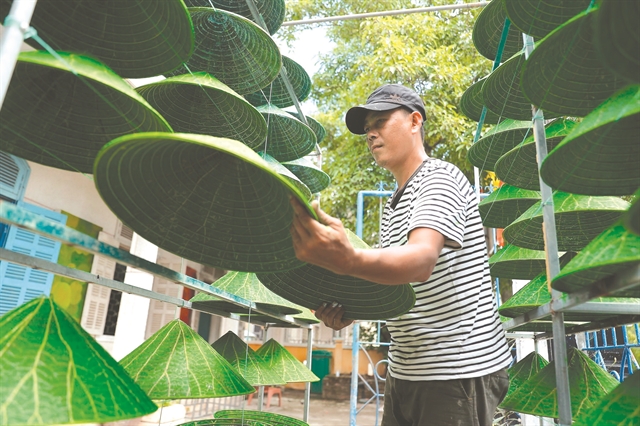 |
| A man places lotus leaf conical hats for sun drying at Thảo’s workshop. |
When first launched, his lotus leaf conical hats made a strong impression due to their novelty and uniqueness. These hats quickly became a popular souvenir among tourists visiting Huế.
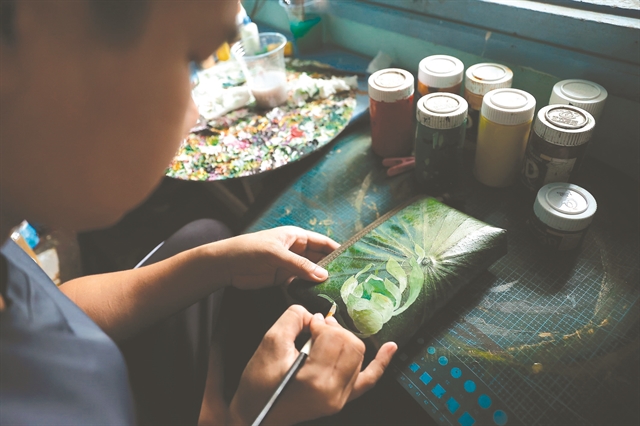 |
| A craftsman paints on a clutch bag made from lotus leaves at Thảo’s workshop. |
Many companies from HCM City, Hà Nội and Đà Nẵng have contacted him to purchase the hats, and businesses from Thailand and South Korea have also placed orders. Currently, each hat costs around VNĐ250,000 (about US$10).
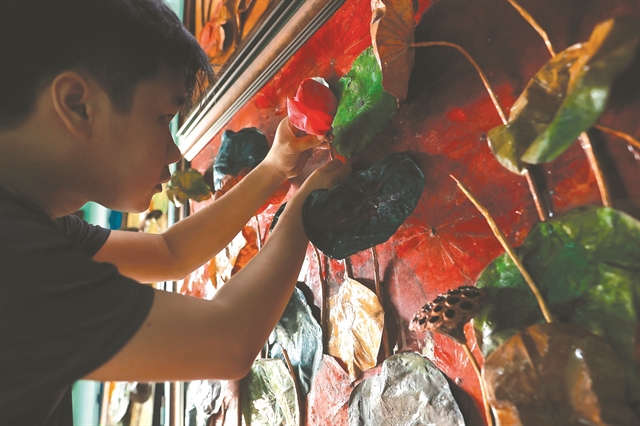 |
| A craftsman works on a painting made from lotus leaves at Thảo’s workshop. |
At the Innovative Startup Competition in Thừa Thiên Huế Province in 2018, his unique lotus leaf hats won the first prize.
In addition to making lotus leaf conical hats, Thảo has been experimenting with creating other handicrafts, such as vases, lanterns, fans, handbags and paintings from the same type of leaf.
Compared to traditional conical hats made of palm leaves, crafting conical hats from lotus leaves requires higher skill and is more challenging. In addition to making lotus leaf conical hats, Thảo has been experimenting with crafting other handicraft products from the leaf, including paintings. VNS


